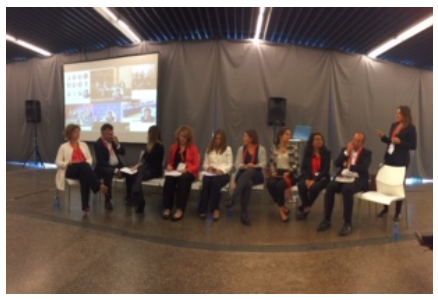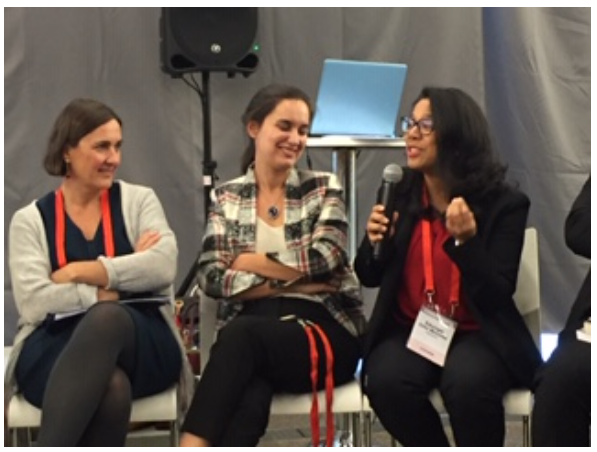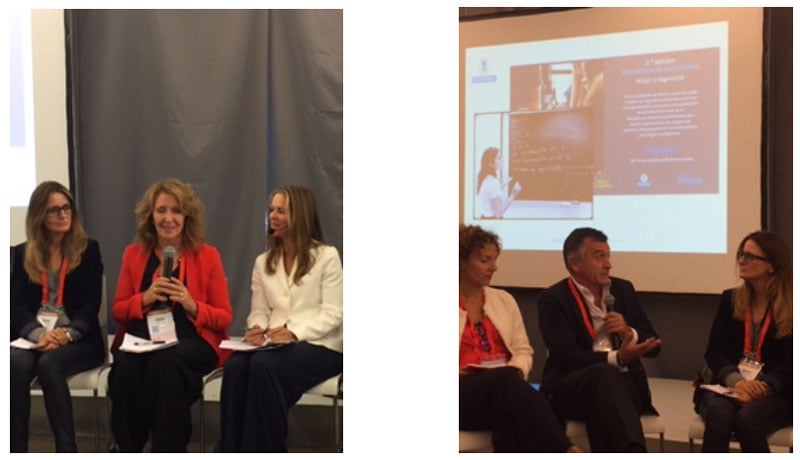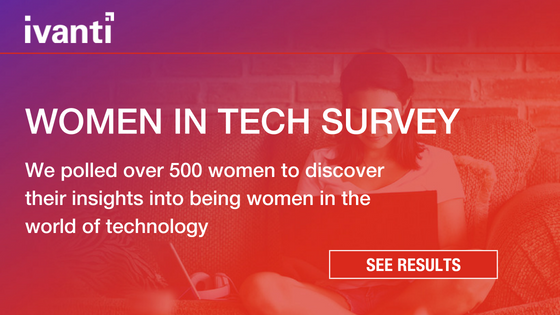Women in Tech Debate in Spain: What Did the Panelists Share?
Key Takeaways
- In Spain, women make up less than one quarter of tech workers.
- The share of women falls sharply in senior roles and in university computer science programmes, where women account for about 13%.
- Panelists stressed that early STEM exposure, mentorship programs and inclusive workplace models such as Telefónica’s Talentum labs are key levers to create and retain female talent.
- Research cited by the speakers links gender‑diverse boards to higher profitability, with a study showing up to a 43 percent improvement in results for diverse companies.
Late October, I led the participation of Ivanti at the itSMF Vision18 congress in Madrid, which included a booth and a speaking slot with customer testimony. The theme was "Innovación, Tecnología, y Personas para la Era Digital" (Innovation, Technology, and People for the Digital Age).
This year, itSMF Spain decided for the first time to organize a debate on women in technology as part of the congress with a panel of experts in education, technology, or gender.
The objective of the debate was to analyze all the key issues, share different points of view, and increase sensitivity in the technological community. The debate focused on real experiences to generate a shared vision and was co-organized by Laura Martinez Alvaro from BreakTheGap, a consulting firm that specializes in equality of opportunities.
Ivanti was invited to take part in the panel with a male representative, Jose Ramon Crespo, country manager Iberia, and we also had the opportunity to present the women in tech survey results in in Spain.
The following topics were discussed during the debate:
- Talent 4.0: Are the right talents for digital being developed? Is there a shortage?
- STEM: Are there enough STEM vocations?
- Challenges for women in tech: Are women underrepresented? How do we attract more women to technology? What factors play a role?
- Opportunities: What are the best practices for companies or organizations to attract/retain women?
- Management: Are quotas effective? How do you balance decision-making?
What About Spain?
In Spain, statistics show that less than 25% of women are working in tech. Statistics also show that women have less presence than men in the information and communication technologies (ICT) sector. This imbalance is accentuated in positions of responsibility, where the proportion of women is lower.
There is growing need for technology professionals, but it’s difficult to satisfy that need with the talent available in the market. The graduates from universities are paying more attention to "digital skills gap" and the "gender gap in ICT".
However, several subsidiaries of global tech companies are managed by female leaders. Six tech companies are managed by a woman in Spain: Microsoft, Google, IBM, HP, Facebook, and Twitter.
Like in any other country, "women in Spain represent a great potential of talents for companies that should not be wasted, if not for social justice, for business competitiveness," says Lucia Coto. In the case of technology areas, another issue if the lack of vocations for STEM
Mentoring is mentioned as a good way for women to get better job opportunities. It should also be proposed by companies.
Laura Martinez Alvaro also mentioned the "leaky pipeline" effect (Smashing IT’s glass ceiling: Perspectives from leadng women CIOs: Deloitte 2018). Why are there so many women in entry-level positions, yet there are so few in exec positions?
What do the panelists have to say?
The following experts were part of the panel:
- Laura Martínez Álvaro (Partner-Director of BreakingTheGap)
- Roberto Ranz Torrejón (VP of the Alliance for the Development of Talent AMETIC)
- Marta Olea de Cárdenas (Deputy Director of Students and International Relations, Polytechnic University of Madrid)
- Eduvigis Ortiz (Sales Director, Alliances and Marketing, NovaRed Spain)
- Idoia Maguregui (President Advisory Board, CIONET)
- Sonia Comajuan Comí (Customer Care Office Altitude Software)
- José Ramón Crespo (Country Manager Ivanti Spain)
- Claudia Di Rienzo (Country Manager EasyVista Spain)
- Rosalia O'Donnell Baeza (Talentum Program, Telefonica Spain)
- Lucía Coto Sauras (ICT Woman Leader itSMF)

Laura Martinez Alvaro
Partner-Director of BreakingTheGap
"After working for almost 18 years in the corporate world as a management consultant, I decided to start my own consulting business BreakTheGap in order to help companies retain best talent. During two decades, I saw how brilliant and talented women dropped out or settled for under jobs or started their own business. This is not good for companies ethics or business results. In fact, several studies, McKinsey's among them, show that gender diverse workplaces outperform others. I aim to help businesses capitalize their best talent and, therefore, help promote women's economic empowerment. »
Eduvigis Ortiz Moronta
Sales Director, Alliances and Marketing, NovaRed Spain
"It is everyone's responsibility to change society from inside. With small actions every day that make all the difference for the present and the future of our girls. We can achieve a more just and equal society for all, being an example at home, at work, at all times of our lives. Let the message stand with our example that technology is a powerful tool that allows us to create and shape a world with equal opportunities for all."

Marta Olea de Cárdenas
Deputy Director of Students and International Relations, Polytechnic University of Madrid
"The UPM (University of Madrid) is enthusiastically facing the growing demand for technological profiles, we are currently the first Spanish-speaking university in the world of engineering according to the prestigious QS ranking and we are striving to maintain this leading position. But we need more girls.
There are large gender differences in virtually all UPM degrees.
The gender differences in IT careers within the UPM are enormous. They are the largest of all the UPM.
There is currently no change in the percentage of girls in these computer degrees. Quite the contrary, sadly. In 2001 at the ETSI Sistemas Informáticos there was 25.6 percent women and right now that percentage is 12.7. It is the lowest of all the UPM. Much remains to be done ..."
Idoia Maguregui Villalain
President Advisory Board, CIONET
"What do organizations that bet on female talent earn? Talent has no gender, betting on talent is betting on balance and sustainability What would happen if we had a society without women? It would simply disappear, I think that is what will happen to companies that do not bet on a plural talent.
Has a sufficient level of representation of women in the governing bodies of companies been achieved in Spain? What implications does this have in terms of competitiveness? How can we balance decision making?
Clearly NO, you just have to read the newspaper as we have composed the Boards of Directors and the Steering Committees in many companies. They are a minority who can talk about balance.
The most competitive societies or companies, are those that are more balanced. There is a correlation between gender diversity and profitability and the generation of value (McKinsey). For example, diversity in councils means, according to this study, a 43% improvement in results."

Rosalia O’Donnell Baeza
Talentum Program, Telefonica Spain
"We must start generating STEM vocations with girls in the first years of primary school. The experience of Talentum Schools of Telefónica, which forms in robotics, app, web development, reality increased to boys and girls in schools, is that, at that age, there are no differences in the interest that awaken these activities.
"In order to resolve the lack of STEM vocations in general, and women in particular, it is critical to generate different management models that take into account the values of the new generations and make these professions attractive. Currently, STEM careers are perceived as very demanding and the professions to which they give access, not very attractive in general and quite demanding in dedication. Telefónica's Talentum LABs model is an effective management formula in this sense. "

